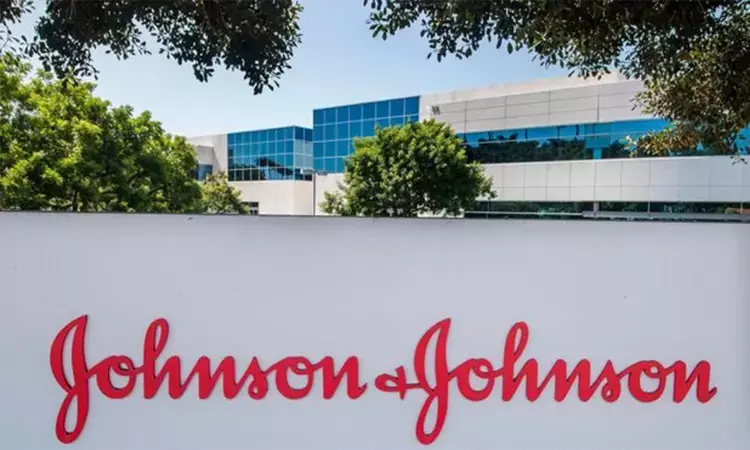- Home
- Medical news & Guidelines
- Anesthesiology
- Cardiology and CTVS
- Critical Care
- Dentistry
- Dermatology
- Diabetes and Endocrinology
- ENT
- Gastroenterology
- Medicine
- Nephrology
- Neurology
- Obstretics-Gynaecology
- Oncology
- Ophthalmology
- Orthopaedics
- Pediatrics-Neonatology
- Psychiatry
- Pulmonology
- Radiology
- Surgery
- Urology
- Laboratory Medicine
- Diet
- Nursing
- Paramedical
- Physiotherapy
- Health news
- Fact Check
- Bone Health Fact Check
- Brain Health Fact Check
- Cancer Related Fact Check
- Child Care Fact Check
- Dental and oral health fact check
- Diabetes and metabolic health fact check
- Diet and Nutrition Fact Check
- Eye and ENT Care Fact Check
- Fitness fact check
- Gut health fact check
- Heart health fact check
- Kidney health fact check
- Medical education fact check
- Men's health fact check
- Respiratory fact check
- Skin and hair care fact check
- Vaccine and Immunization fact check
- Women's health fact check
- AYUSH
- State News
- Andaman and Nicobar Islands
- Andhra Pradesh
- Arunachal Pradesh
- Assam
- Bihar
- Chandigarh
- Chattisgarh
- Dadra and Nagar Haveli
- Daman and Diu
- Delhi
- Goa
- Gujarat
- Haryana
- Himachal Pradesh
- Jammu & Kashmir
- Jharkhand
- Karnataka
- Kerala
- Ladakh
- Lakshadweep
- Madhya Pradesh
- Maharashtra
- Manipur
- Meghalaya
- Mizoram
- Nagaland
- Odisha
- Puducherry
- Punjab
- Rajasthan
- Sikkim
- Tamil Nadu
- Telangana
- Tripura
- Uttar Pradesh
- Uttrakhand
- West Bengal
- Medical Education
- Industry
Johnson and Johnson 1-dose shot prevents COVID-19, says FDA

New Delhi: Johnson & Johnson's single-dose vaccine protects against Covid-19, according to an analysis by U.S. regulators Wednesday that sets the stage for a final decision on a new and easier-to-use shot to help tame the pandemic.
The Food and Drug Administration's scientists confirmed that overall the vaccine is about 66% effective at preventing moderate to severe Covid-19. The agency also said J&J's shot - one that could help speed vaccinations by requiring just one dose instead of two - is safe to use.
That's just one step in the FDA's evaluation of a third vaccine option for the U.S. On Friday, the agency's independent advisers will debate if the evidence is strong enough to recommend the long-anticipated shot. Armed with that advice, FDA is expected to make a final decision within days.
The vaccination drive has been slower than hoped, hampered by logistical issues and weather delays even as the country mourns more than 500,000 virus-related deaths. So far, about 44.5 million Americans have received at least one dose of vaccine made by Pfizer or Moderna, and nearly 20 million have received the second dose required for full protection.
J&J tested its single-dose option in 44,000 people in the U.S., Latin America and South Africa. Different mutated versions of the virus are circulating in different countries, and the FDA analysis cautioned that it's not clear how well the vaccine works against each variant. But J&J previously announced the vaccine worked better in the U.S. -- 72% effective against moderate to severe Covid-19, compared with 66% in Latin America and 57% in South Africa.
Still, in every country, it was highly effective against the most serious symptoms, and early study results showed no hospitalizations or deaths starting 28 days after vaccination.
While the overall effectiveness numbers may suggest the J&J candidate isn't quite as strong as two-dose competitors, all of the world's Covid-19 vaccines have been tested differently, making comparisons nearly impossible. While it wouldn't be surprising if one dose turns out to be a little weaker than two doses, policymakers will decide if that's an acceptable trade-off to get more people vaccinated faster.
J&J was on track to become the world's first one-dose option until earlier this month, Mexico announced it would use a one-dose version from China's CanSino. That vaccine is made with similar technology as J&J's but initially was developed as a two-dose option until beginning a one-dose test in the fall.
The rival Pfizer and Moderna vaccines being used in the U.S. and numerous other countries must be kept frozen, while the J&J shot can last three months in the refrigerator, making it easier to handle. AstraZeneca's vaccine, widely used in Europe, Britain and Israel, is made similarly and also requires refrigeration but takes two doses.
If the FDA clears the J&J shot for U.S. use, it won't boost vaccine supplies significantly right away. Only a few million doses are expected to be ready for shipping in the first week. But J&J told Congress this week that it expected to provide 20 million doses by the end of March and 100 million by summer.
European regulators and the World Health Organization also are considering J&J's vaccine. Worldwide, the company aims to be producing around a billion doses by the end of the year.
Ruchika Sharma joined Medical Dialogue as an Correspondent for the Business Section in 2019. She covers all the updates in the Pharmaceutical field, Policy, Insurance, Business Healthcare, Medical News, Health News, Pharma News, Healthcare and Investment. She has completed her B.Com from Delhi University and then pursued postgraduation in M.Com. She can be contacted at editorial@medicaldialogues.in Contact no. 011-43720751
Next Story


